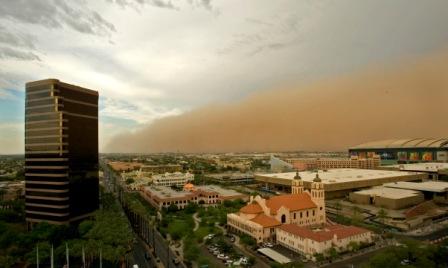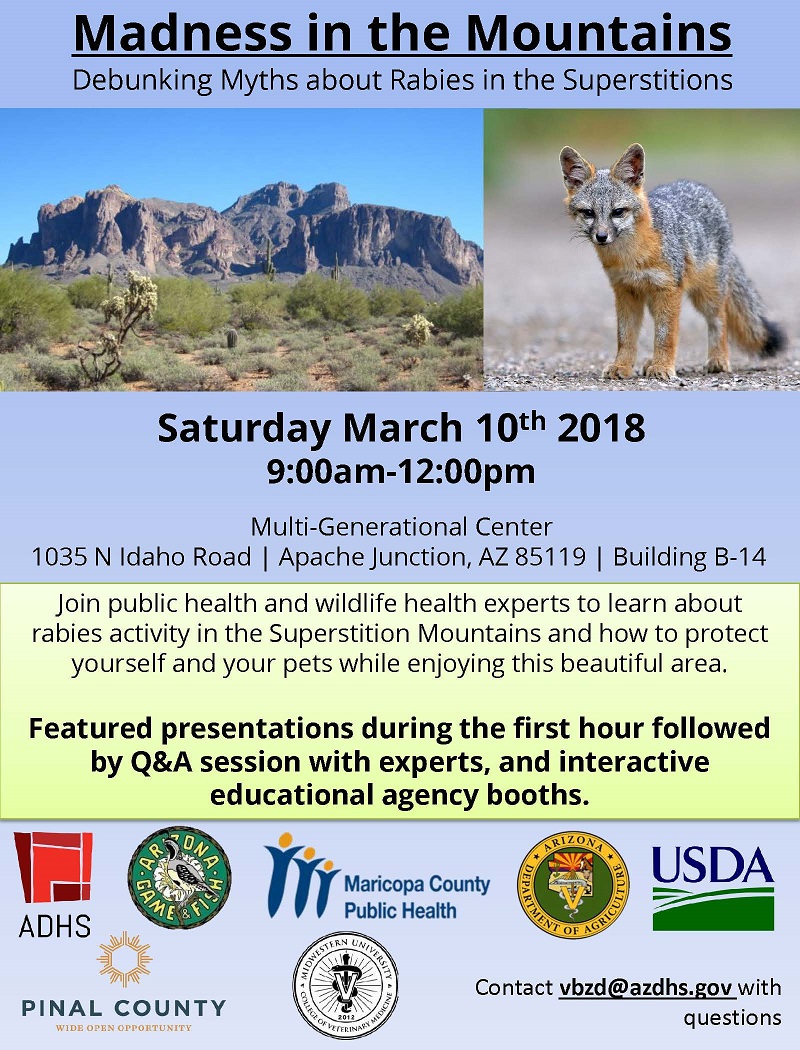 Arizonans are no strangers to weather emergencies. Weather reports of extreme heat, flash flooding, wildfires, dust storms, and monsoon storms are frequent during our summer months. During our winter months, some of our higher elevation counties experience cold and snow hazards. As mentioned recently during National Public Health Week, extreme weather impacts public health. Our agency routinely works with local, state, and federal partners to coordinate emergency preparedness efforts to minimize health effects from environmental hazards.
Arizonans are no strangers to weather emergencies. Weather reports of extreme heat, flash flooding, wildfires, dust storms, and monsoon storms are frequent during our summer months. During our winter months, some of our higher elevation counties experience cold and snow hazards. As mentioned recently during National Public Health Week, extreme weather impacts public health. Our agency routinely works with local, state, and federal partners to coordinate emergency preparedness efforts to minimize health effects from environmental hazards.
Last year, we held a workshop with stakeholders from around the state to help share lessons learned on implementing public health interventions for weather hazards. Discussions provided insight into operating cooling centers, issuing weather alerts, education campaigns, and public health surveillance methods, which aim to help people most at risk during weather events. During the workshop, stakeholders identified numerous examples of the great work being done around the state.
In partnership with Arizona State University and the University of Arizona, our extreme weather and public health team recently summarized that work into a strategic plan published this month in the Climate and Health Adaptation Plan. The plan identifies actions organizations can adopt in their work to minimize the public health impacts of future extreme weather emergencies. It also highlights local examples of projects helping those most at risk; such as a hiking safety campaign for out-of-town park visitors not acclimated to the state’s warm weather and relief for the homeless during hot summer days and cold winter nights. We will update this plan in the future with new highlights from partners and new effective interventions showcasing efforts to protect Arizonans and visitors to our state.











